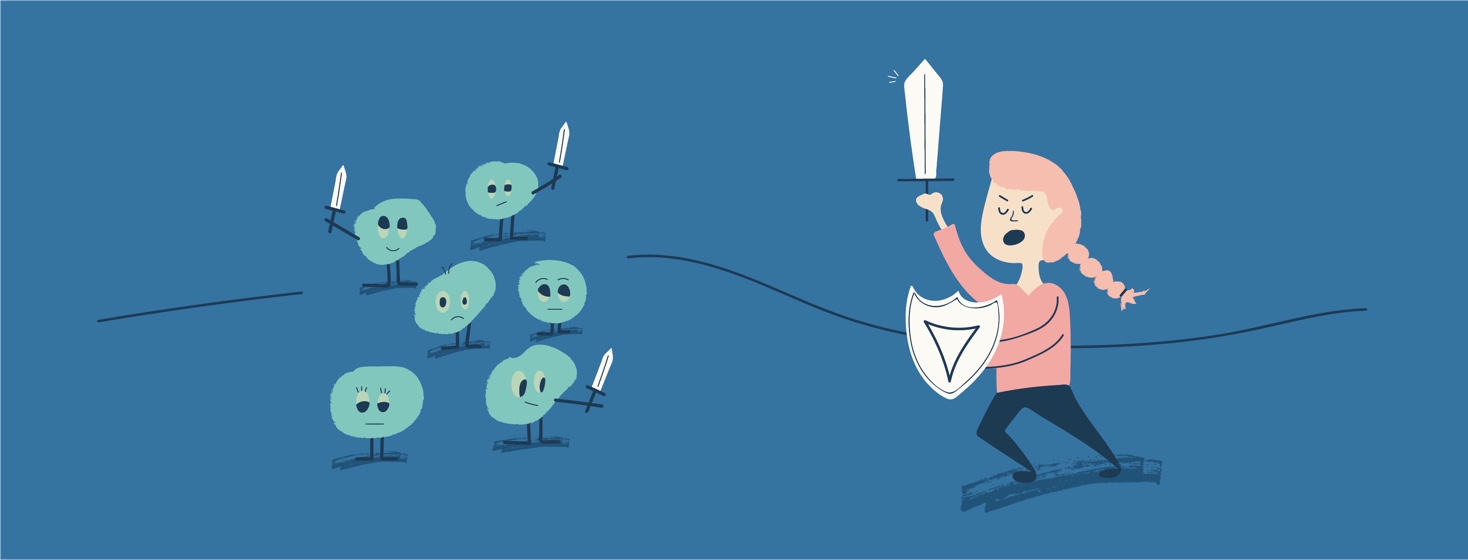Deciding When to Retreat
After three years since my first treatment for follicular lymphoma, my doctor and I recently decided it’s time for retreatment. I had a full response to Rituxin monotherapy in December 2015. Rituxin, a monoclonal antibody therapy, shrunk the 12 plus lymph nodes in my abdomen and along my aorta back to normal size. Unfortunately, at my six-month scan, the lymph nodes had started to grow again. I’ve been on watch and wait/worry for the last three years, and at each scan, they continued to grow.
No clear path
Treatment decisions about slowing growing or indolent lymphomas like mine are not clear-cut. From on-line forums such as Blood-Cancer.com and others, I’ve seen a diversity of treatment approaches for people at similar stages of this disease to me. There have been those who stay on watch and wait for years, and then those who doctors recommend they start out with multiple chemotherapy drugs.
Focus on my treatment goals
As a patient, it can be hard to know what is the best approach. For me, a youngish follicular lymphoma patient in overall good health with no other major health issues, I’m also focused on doing the least amount of damage to my body from the treatment since I will likely have multiple treatments in my lifetime.
So what’s a patient to do? For me, the decision came after multiple discussions with my doctor and focusing on the goals we set for treating my lymphoma. Currently, the enlarged lymph nodes are not compromising any vital organs, but I have persistent fatigue and abdominal pain that might improve from knocking them back. My doctor felt I could wait another six months but also supported a decision to retreat now.
Multiple factors considered
Ultimately, I decided to retreat now versus waiting another six months. This was based on a mix of medical, practical and emotional reasons. First off, I’m hoping the treatment will eliminate or improve my fatigue and pain. I decided it seemed ridiculous to suffer from those for another six months. On the practical side, I didn’t want to do the retreatment in the summer. It’s my favorite time of the year, and my kids are home for school. A month of getting treatment and recovering from it when we could be at the pool or on vacation didn’t seem like fun to me. In January, I usually want to hibernate. Now I’ll just have a good excuse to stay in my bed binging TV shows.
Emotional reasons also valid
On the emotional side, watch and wait is hard. Just sitting back watching cancer grow in my body is challenging for me. I can intellectually understand why watch and wait makes sense, but I haven’t always been able to eliminate the anxiety it causes. Deciding to treat it and knock it back feels empowering. It’s like hitting a reset button, and it’s nice to know that I likely won’t need treatment for another few years.

Join the conversation